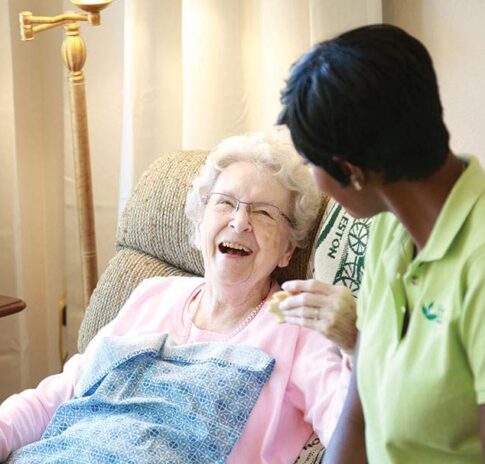No one is immune to scams, but it seems the elderly are particularly targeted. My Dad was a very savvy 75-year-old accountant. His mind was extremely sharp before he passed away, but his financial judgments were slightly slipping. He was extremely charitable, donating to many causes – he was always taken in by sad stories.
Therefore, I was not surprised when he told me he had “adopted a family” in Nigeria. Every month he sent them a set amount, but then the disasters started and they needed more money for hospital and medical bills. How could he not help a 5-year-old girl suffering from asthma? A Father who contracted pneumonia? Or a Mother who was having another baby? We tried to explain to him that he was being conned, but he ignored our concerns. When all was said and done, he was scammed for more than $15,000.
In comparison to many senior citizens, he got off easy – FBI statistics show that more than $30 million is lost to scammers. This number is severely underreported, because many senior citizens do not want to admit they were duped. The Federal Trade Commission estimates that nearly 25 million Americans are victims of consumer fraud each year. Studies have shown that senior citizens are more at risk to be targeted by telemarketing scams than other age groups, and fraudulent telemarketers direct anywhere from 56 to 80 percent of their calls at older Americans.
So how do you help the elderly from telemarketing scams versus legitimate offers? The best way is to be educated consumers. According to the National Prime Convention Council and FBI, here’s some tips to avoid senior scams:
- Personal Information. Never divulge any personal information such as a social security number, credit card information or bank account information to unknown or unfamiliar companies.
- Vacation/Travel offers. If an offer seems to be too good to be true, it probably is. You may get calls promising fantastic trips or prizes. To claim the prize, you need to pay a fee up front. When the prize arrives, it is a cheap trinket. Be extremely wary of time shares.
- Credit cards. If you have a bad credit history, you may be offered a credit card
for an advance fee. However, the credit card never appears. - Work at home. With many people starting their own businesses at home, it’s hard to weed through the legitimate work at home offers. Too often you are asked to pay for training or materials upfront, and either the materials never arrive, or there are no customers for the services.
- Phishing. You may get an email that looks like it came from your bank or financial institution, telling you that you need to update your information or your account is in jeopardy. Next thing you know, you are a victim of identity theft.
- Foreign Lotteries. You may be asked to buy tickets for a foreign lottery with a
large jackpot. Unfortunately, either there is no lottery or you never receive a
ticket. It is illegal to promote a foreign lottery in the United States. - Pyramid Schemes. You may be asked to recruit members in exchange for big profits. Most multilevel marketing plans that do not actually sell goods or services
quickly fall apart. - Charity scams. A natural disaster occurs and you get a letter/call/email asking you to donate. Unfortunately, the victims never receive the funds. Find out what
percentage of the money is paid in commissions and what percentage actually
goes to the charity or investment. - Investment schemes. These may include advance fee schemes, prime bank note schemes, pyramid schemes, and Nigerian letter fraud schemes. Please visit the Common Fraud Schemes webpage for more information about these crimes and tips for protecting yourself from them.
Remember, anyone with a telephone, cell phone, computer or mailbox can be a victim. Because, senior citizens often have a “nest egg,” to own their home, and/or to have excellent credit—they are more susceptible to con artists.
As an adult daughter, if I was more educated, I could have saved my father money and misery! We need to protect our parents and even elderly scams from our grandparents!
